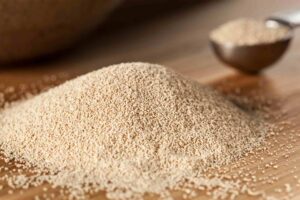Although the functions of antioxidants and their importance have been widely studied, the complex interactions between antioxidants have not been fully elucidated, especially in dogs and cats.
Therefore, the purpose of the study conducted by Kansas University was to determine the effect of a combination of dietary antioxidants on DNA damage and antioxidant status in dogs and cats.
Animals have an impressive array of defenses against excess reactive oxygen species in the body. The antioxidant system is a complex and sophisticated defense system.Substances known for their ability to scavenge free radicals, which are created during oxidative stress, include vitamin E, vitamin C, and β-carotene.
Alpha-tocopherol (vitamin E) is an antioxidant widely involved in improving the ability of biological systems to respond to oxidative stress and in enhancing the immune system. During the process of free radical scavenging, vitamin C supports the regeneration of vitamin E.
Forty adult mixed-breed dogs and 40 short-haired cats were randomly assigned to one of four treatment groups per species. Dogs and cats remained in these groups for the duration of the study, which was 84 days.
The foods differed in terms of antioxidant supplementation: the control food met all theAssociation of American Feed Control Officials ‘ requirements for a complete and balanced diet, including enough vitamin E to exceed the indicated minimum.
Treatment diets were targeted to include 500, 1,000 or 1,500 IU of vitamin E per kg, in addition to 100 ppm vitamin C and 1.5 ppm β-carotene in the food. The effect of vitamin E supplementation level on serum vitamin E concentration, DNA damage and total antioxidant potency was evaluated.
The results of the study
Feeding antioxidant-enriched diets resulted in increased (P < 0.05) circulating vitamin E concentration, increased (P < 0.05) immune cell protection, reduced (P < 0.05) DNA damage, and improved (P < 0.05) antioxidant status.
These results provide valuable insights into the range of vitamin E supplementation that should be considered in diets for healthy dogs and cats. Both dogs and cats benefited from increased antioxidants in the diet, and circulating vitamin E concentration was maximized when vitamin E was provided at about 1,000 IU/kg in the food.
Overall, these data show that dogs and cats fed a mixture of antioxidants including vitamin E, vitamin C and β-carotene have better immune health, observable through reduced signs of oxidation and decreased cellular degradation.
Reference
Dennis E Jewell, Laura A Motsinger, Inke Paetau-Robinson, Effect of dietary antioxidants on free radical damage in dogs and cats, Journal of Animal Science, Volume 102, 2024, skae153, https://doi.org/10.1093/jas/skae153







